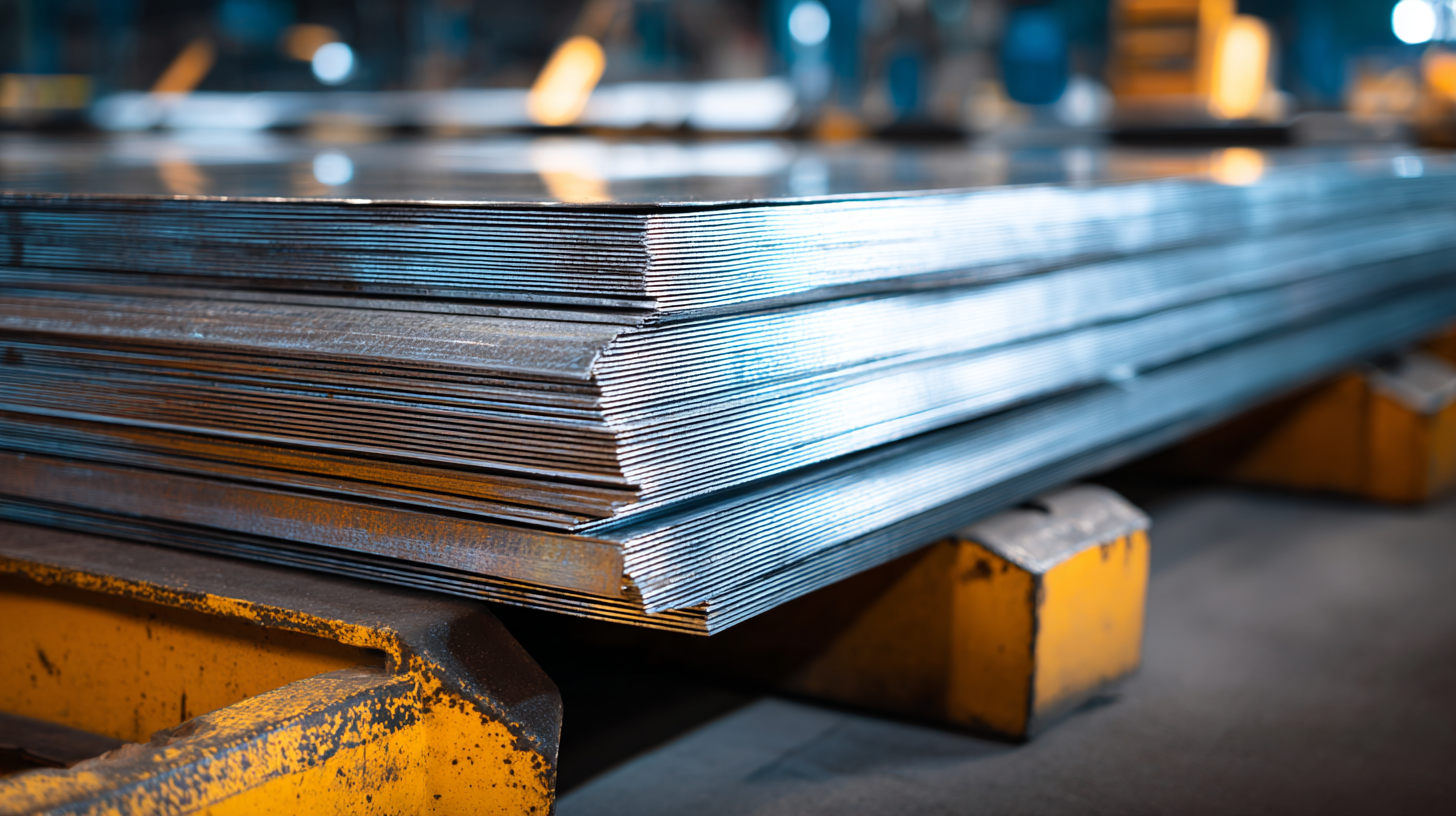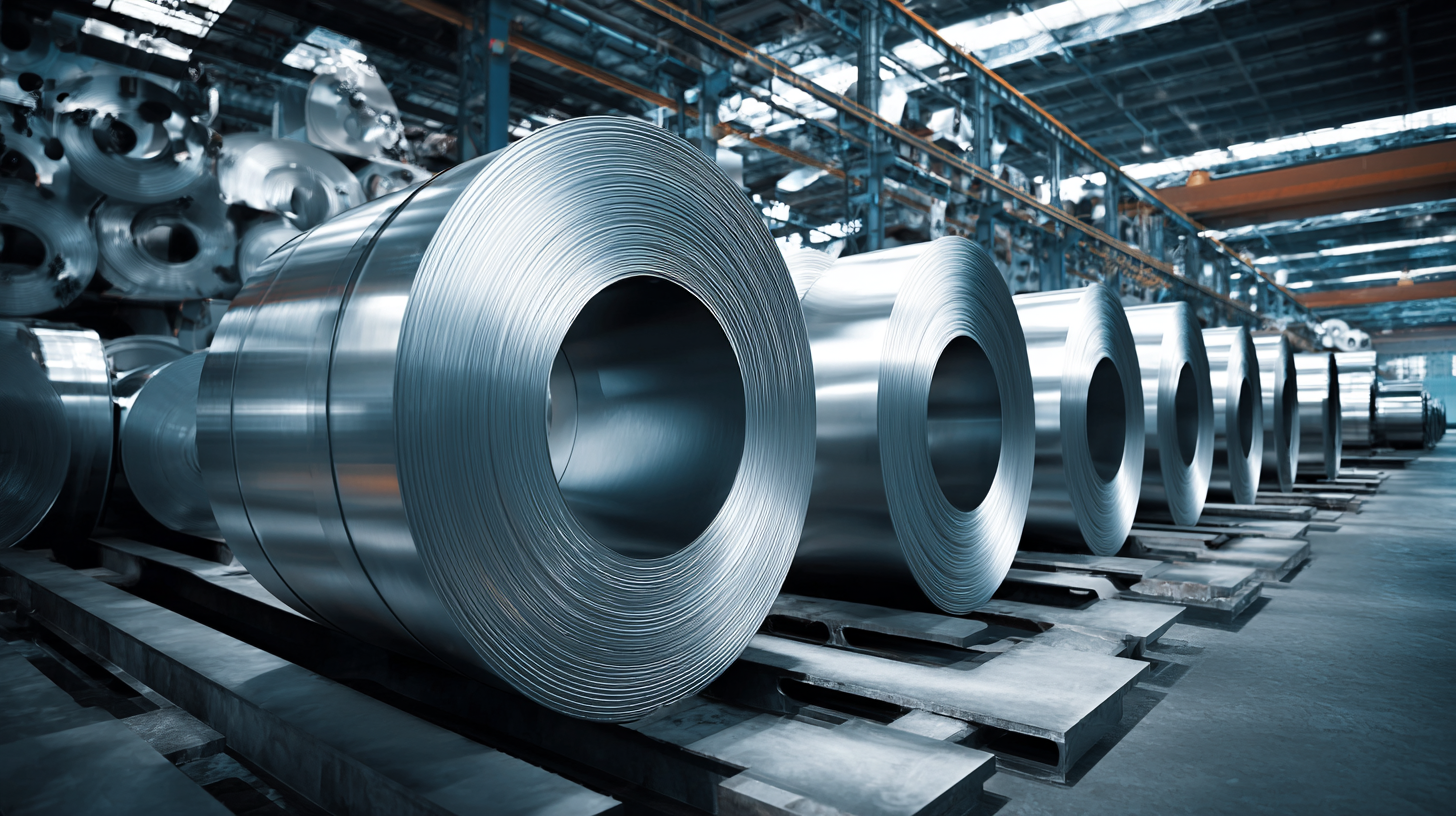In today's world, the demand for high-quality materials like stainless steel plates is on the rise, particularly in industries ranging from construction to manufacturing. Finding reliable suppliers for your stainless steel plate needs can be a daunting task, especially given the plethora of options available in the market. This blog aims to guide readers through the essential factors to consider when seeking dependable suppliers, ensuring you receive not only the best products but also exceptional service and support.
We will explore various types of stainless steel plates, their applications, and the key attributes that make a supplier trustworthy. Whether you are looking for a specific grade, thickness, or finish, understanding the landscape of stainless steel plate procurement will empower you to make informed decisions that meet your project requirements effectively.

When seeking reliable suppliers for stainless steel plates, it’s essential to identify key characteristics that set apart reputable vendors from the competition. One critical trait is industry experience. Suppliers with over a decade in the business not only have a robust understanding of material properties but also a proven track record of fulfilling diverse customer needs. According to a recent industry report by Grand View Research, the stainless steel market is projected to reach USD 150.42 billion by 2028, emphasizing the increasing demand for quality suppliers who can meet evolving market standards.
Another crucial characteristic is certification and compliance with international standards. Reliable suppliers should hold certifications such as ISO 9001, which indicates a systematic approach to quality management. Moreover, they should comply with ASTM and EN standards, which ensure that the materials meet the required specifications for durability and performance. A study by the International Stainless Steel Forum highlights that organizations with certified processes report a 15% increase in customer satisfaction, validating the importance of choosing suppliers that adhere to these quality benchmarks.
When sourcing stainless steel plates, understanding the role of certifications in supplier selection is crucial. Certifications such as ISO 9001, ASTM, and CE mark serve as indicators of a supplier’s adherence to industry standards and quality control processes. These credentials help ensure that the materials provided meet necessary safety and reliability requirements, which is particularly important in industries like construction, automotive, and food processing where structural integrity is non-negotiable.

Moreover, certifications can enhance transparency between you and your supplier. A certified supplier can provide documented proof of compliance with quality standards and regulatory requirements. This transparency fosters trust and enables a more seamless business relationship, reducing the risks associated with sourcing materials from less reputable vendors. By prioritizing suppliers with recognized certifications, businesses can bolster their operational efficiency and product quality while mitigating potential risks associated with faulty materials.
Evaluating supplier performance is crucial in sourcing high-quality stainless steel plates. To ensure you're partnering with reliable suppliers, it's important to analyze industry data and metrics that reflect their capabilities. This involves reviewing factors such as delivery times, product quality, and customer service ratings. By aggregating this information, businesses can create a comprehensive performance profile for each potential supplier, helping to identify those who consistently meet or exceed expectations.
In addition to quantitative metrics, qualitative assessments, like obtaining feedback from previous clients, can provide valuable insights into a supplier's reliability. Engaging with industry forums or networking events can also reveal the reputation and performance history of suppliers. These combined evaluations allow companies to make informed decisions that align with their specific needs for stainless steel plates, ensuring they choose partners that can deliver not only on time but also with the quality required for their projects.
This chart illustrates the performance metrics of various suppliers based on delivery time and product quality scores, helping you make informed decisions for stainless steel plate procurement.
When it comes to sourcing stainless steel plates, companies often face the crucial decision of whether to opt for domestic or international suppliers. According to the World Steel Association, global stainless steel production reached approximately 50 million metric tons in 2021, highlighting a robust international market. Domestic suppliers, while potentially offering shorter lead times and reduced shipping costs, may not always provide the same price competitiveness as larger international manufacturers. Many U.S.-based companies find that sourcing overseas can significantly lower costs in an increasingly competitive marketplace.
Tips for selecting the right supplier include thoroughly assessing their certifications and quality management systems. The International Organization for Standardization (ISO) standards, for instance, play a key role in ensuring product reliability. Moreover, companies should consider the full lifecycle cost of the product, including shipping and tariffs, which can impact the overall price efficiency of international suppliers. Lastly, don't underestimate the importance of local warehousing options, which can provide quicker access to materials without the need for extensive international logistics.
Ultimately, comparing domestic and international suppliers allows businesses to balance costs against quality and reliability. By carefully evaluating the strengths and weaknesses of each option, companies can align their sourcing strategies with their operational goals, ensuring that they not only meet their stainless steel plate needs but also optimize their supply chain effectively.
| Supplier Type | Country/Region | Material Quality Rating (1-5) | Average Lead Time (Days) | Pricing (USD Per Ton) |
|---|---|---|---|---|
| Domestic | USA | 4 | 15 | 2500 |
| International | China | 3 | 30 | 1800 |
| International | Germany | 5 | 20 | 3000 |
| Domestic | Canada | 4 | 12 | 2700 |
| International | India | 3 | 25 | 1600 |
When sourcing reliable suppliers for stainless steel plates, navigating supply chain challenges can prove to be a daunting task. The first step is to clearly define your specific needs, including the grade, thickness, and dimensions of the stainless steel plates required. This information not only aids in targeting the right suppliers but also sets clear expectations for both parties. Conducting thorough research and leveraging industry connections can help identify potential suppliers with positive reputations and proven track records in fulfilling orders on time and within budget.

Once you have shortlisted potential suppliers, communication is key. Reach out to them to discuss your requirements in detail, inquire about their production capabilities, and assess their responsiveness. Establishing a strong relationship with suppliers fosters trust and can lead to better negotiation on pricing and delivery terms. Additionally, consider implementing a risk assessment strategy which includes regular evaluations of supplier performance, quality checks, and diversifying your supplier base to reduce dependency on a single source, ultimately ensuring a more resilient and reliable supply chain.



